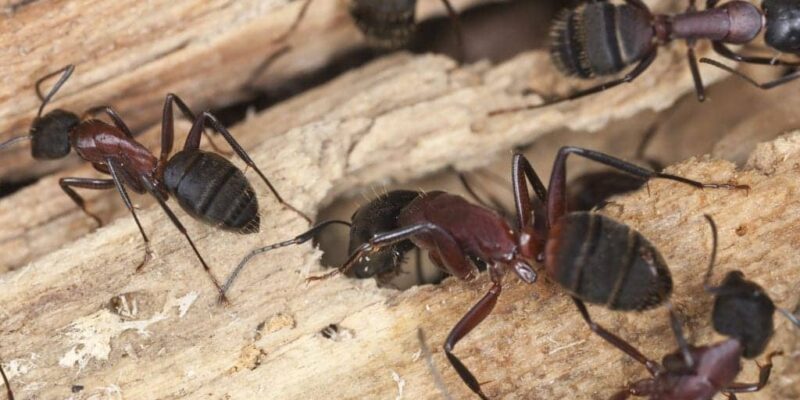Ants are among the most common pests found in Florida homes. You will find various species creating havoc in your kitchens, gardens, and other parts of the house. Florida has over 32 different species of ants, so it is important to understand how to control them. Many homeowners resort to the DIY method, but they do not really offer a long-term solution.
There is a lot of misinformation on the Internet, which causes people to believe in myths and misconceptions about ant pest control. You might have heard that vinegar, chalk lines, cinnamon, etc., can eliminate ant colonies. However, these do not offer permanent solutions. For instance, vinegar may remove the pheromone trails but does not kill or repel ants.
Understanding the reality behind these myths is important for effective ant control on your property. Instead of relying on methods that have no promising results, get services for pest control in Lake Butler today. Experts possess the knowledge to deal with different types of ants in both commercial and residential properties and can provide effective results.
Myth #1: Lemon juice or vinegar can repel ants.
Explanation of the myth- Many people believe that lemon juice and vinegar create a barrier that ants do not cross. Therefore, applying these substances around your house can repel them. Homeowners often opt for this solution to avoid chemical substances.
The reality of the myth- While lemon juice and vinegar can temporarily repel ants from coming towards your property, they do not eliminate future infestations. The disruption is only temporary; ants quickly adapt and find new routes to their food sources.
Myth #2: Boiling water will destroy the entire ant colony.
Explanation of the myth- Many homeowners are of the opinion that since ants cannot survive in extreme temperatures, boiling water can kill them. This misconception contains that the heat of the water is enough to kill all the ants in a single colony.
The reality of the myth- In reality, pouring boiling water into a colony may kill some ants, but it will not kill all of them. It does not reach the deeper layers where the queens and most of the working ants reside. While it can damage the colony, the method is ineffective in killing all ants.
Myth #3: Ants will die off in winter.
Explanation of the myth- A lot of people think that ants naturally die during the colder months due to the extreme temperatures. Homeowners often assume this because they do not see much ants during the winter.
The reality of the myth- Ants do not die during the winter. They go into a state of dormancy to survive the cold, seeking refuge in their nests or under tree bark. Ants only become less active during the winter but do not die. They wait in their nests for it to be warm and humid again.
Myth #4: Ants only invade dirty homes.
Explanation of the myth- It is commonly thought that ants only invade homes that are dirty and unsanitary. Therefore, people think that if they maintain a clean property, they won’t attract ants. But, this provides a false sense of security where cleanliness alone cannot provide protection.
The reality of the myth- Ants will enter any property where they can find food sources and moisture. It does not matter whether you mop your floor thrice a day; you might still see ants if there are accessible food sources or moisture available. The smallest of crumbs and spills are enough to lead them towards your property.
Stop ant infestations now!
While homeowners are often more inclined towards trying out DIY methods first, they prove to be ineffective. Such methods won’t eliminate the entire colony, and your efforts will go to waste. If you are facing a persistent ant problem in Florida, contact professional pest control services today and get a thorough assessment of your property done!












Comments